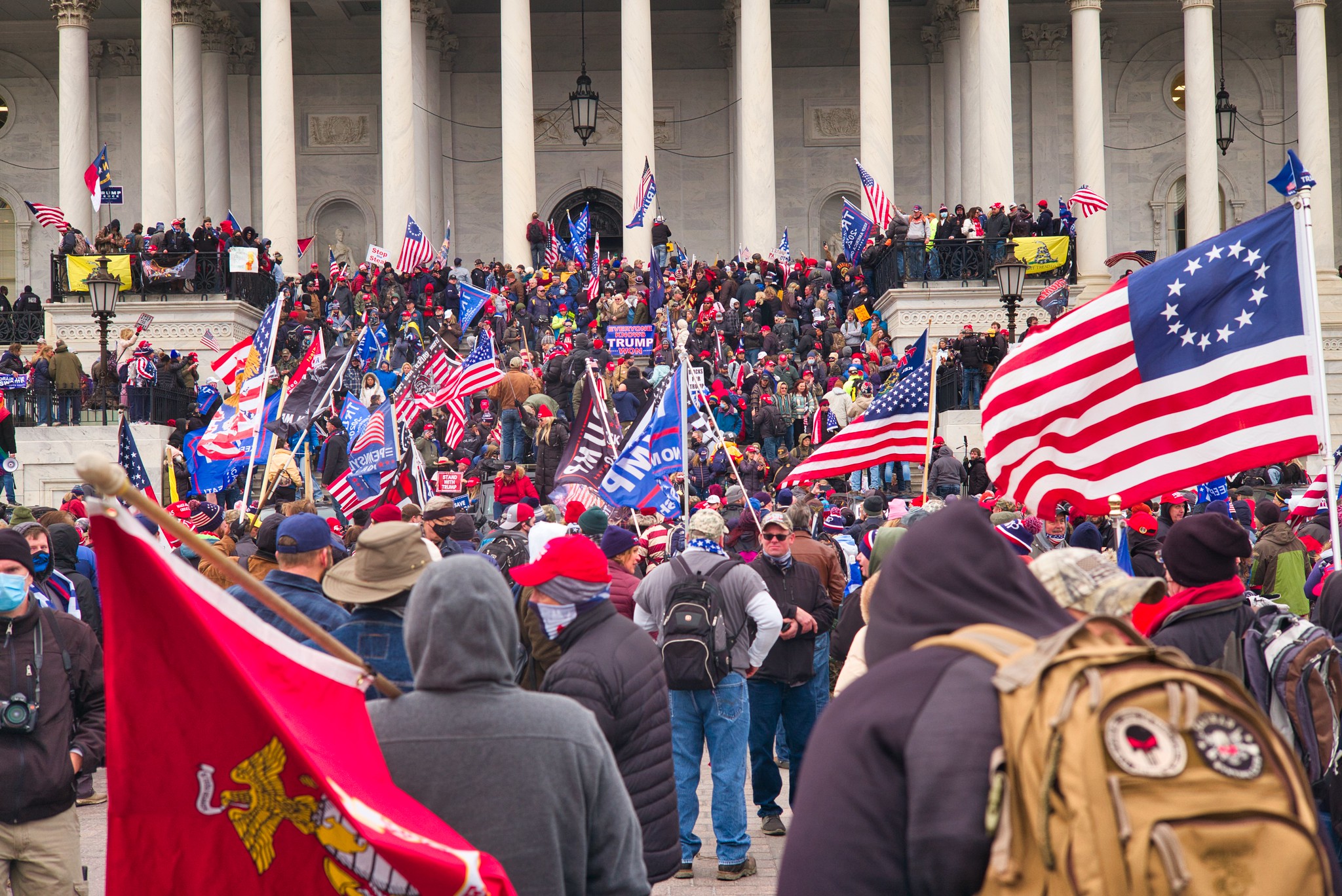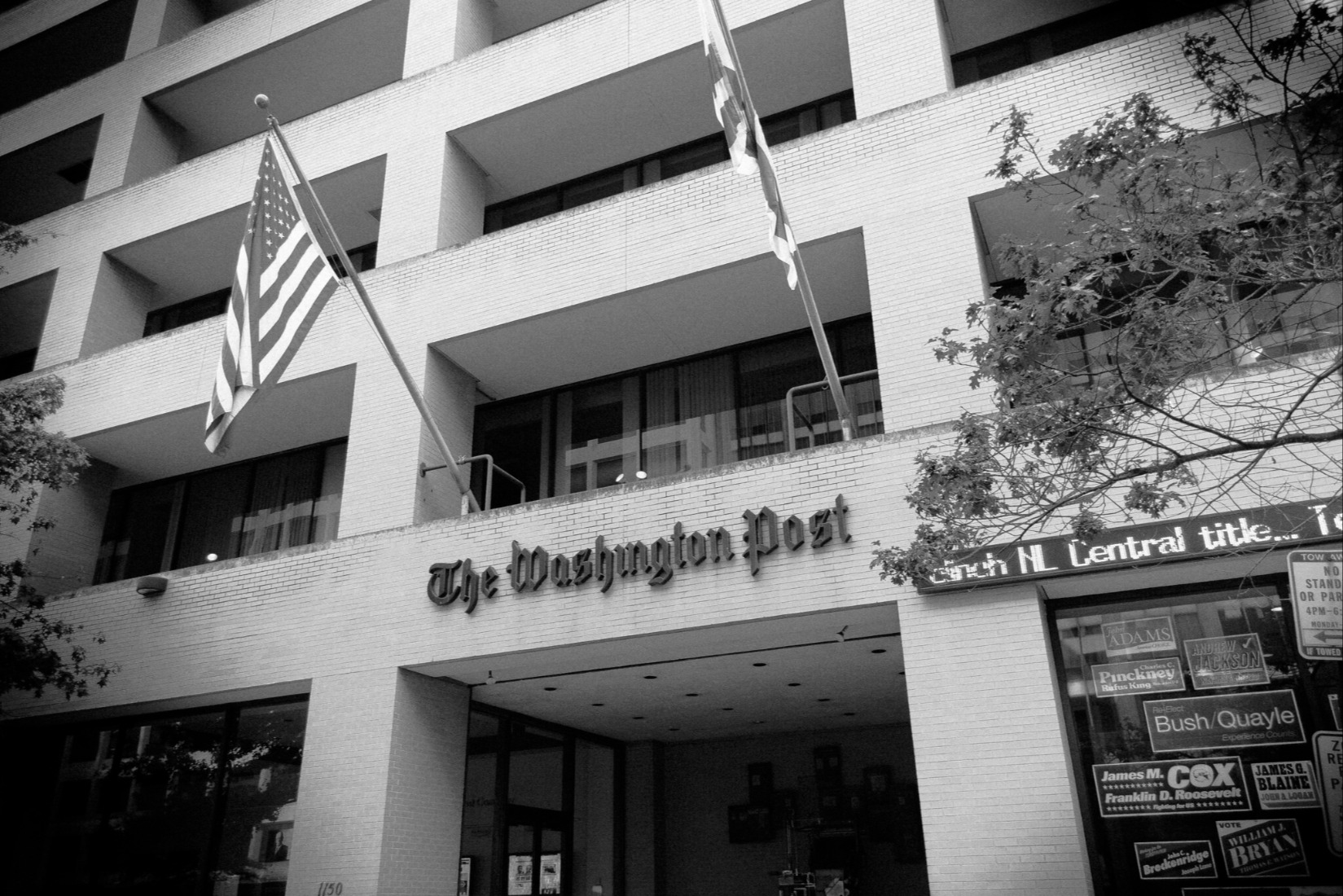What Does the Seditious Conspiracy Indictment Mean For the Oath Keepers?
The Oath Keepers, one of the premier anti-government movements in the United States that boasts a purported membership in the thousands, is facing an existential threat.

Published by The Lawfare Institute
in Cooperation With

The Oath Keepers, one of the premier anti-government movements in the United States that boasts a purported membership in the thousands, is facing an existential threat. The group is already under pressure from the arrests of dozens of its foot soldiers related to their efforts to breach the U.S. Capitol on Jan. 6, 2021. The Department of Justice has now raised the stakes with the seditious conspiracy charges filed on Jan. 12 against the Oath Keepers founder, Stewart Rhodes. Given that escalation, it’s worth taking a look at the history of Rhodes’s involvement in the Oath Keepers and what his prosecution might mean for the future of the organization and the broader anti-government movement.
Rhodes established himself as a polarizing individual in the far-right ecosystem when he founded the Oath Keepers in 2009. Like a modern-day, extremist Forrest Gump who finds himself in a mix of significant historical events, Rhodes has been explicitly or tacitly involved in nearly every major anti-government event in the past decade.
He established the Oath Keepers as a vanguard for the burgeoning anti-authority movement in the United States, which saw a number of high-profile events in the past 10 years, from the Bundy Ranch standoff and Ferguson protests to the Sugar Pine Mine operation and the occupation of the Malheur National Wildlife Refuge. As Rhodes’s fame grew, the organization added hundreds to its membership rolls and raised considerable funding off the cult of his personality.
The Oath Keepers leader has developed a consistent pattern for fundraising: exhorting his followers to mobilize in the name of liberty in the face of tyranny, while garnering comparisons to “a moth to the flame” who “flies in, throws up a PayPal, and then disappears.” Until the seditious conspiracy indictment, Rhodes had managed to avoid criminal charges that plagued numerous Oath Keepers around the country in recent years, despite taking a prominent role in the national actions of an extremist organization shaped in his image and defined by his ideological goals.
Previously, Rhodes walked a fine line between fiery ideas and violent action. That line will now be tested. The indictment against Rhodes and his co-defendants represents not just a potent message from the Justice Department and a precedent-setting criminal charge but also an attempt to address head-on extremist leaders who incite their followers to live the ideology they preach through violent acts.
Prior to Rhodes’s indictment, there were cracks in the organization. After Jan. 6, the Oath Keepers was reportedly losing members who had joined the organization before that day and who may have had second thoughts about membership in a group that attacked the Capitol while claiming to be guardians of the Republic. Five of the 26 Oath Keepers charged for their role in the events of Jan. 6 have pleaded guilty. As part of that allocution process, they are likely helping the Justice Department build the case against their former leader.
This also represents a new phase in the prosecution of individuals connected to the Capitol riot on Jan. 6. More than 700 individuals have been charged, but until Rhodes’s indictment, the vast majority had crossed the legal threshold of stepping onto the hallowed ground of the legislative branch that day, unlike Rhodes who was not present inside the Capitol.
Attorney General Merrick Garland spoke at length recently on the Justice Department’s expansive efforts to prosecute “all January 6th perpetrators, at any level, accountable under law—whether they were present that day or were otherwise criminally responsible for the assault on our democracy.” President Biden pointedly referred to the events of the day as “an armed insurrection … looking to subvert the Constitution.” Indeed, the prosecution of Rhodes and his co-defendants serves to elevate these Oath Keepers to a new tier of criminal conduct, into territory far more significant than trespassing, assault or obstruction of a congressional proceeding. This indictment may also serve as a warning to other high-level members of domestic violent extremist movements who allegedly engaged in similar conspiracies, including Proud Boys leaders such as Ethan Nordean and Joseph Biggs and potentially Proud Boys president Enrique Tarrio.
The arrest of Stewart Rhodes is likely to serve as a short-term blow to the operational activities of the Oath Keepers as a formal entity. The indictment against him makes it clear how important he is to the organization. He allegedly ran point on creating online encrypted groups where he pushed out orders to his followers. In one chat, entitled “Leadership intel sharing secured,” he noted two days after the November election, “We aren’t getting through this without a civil war. Too late for that. Prepare your mind, body, spirit[.]” Four days later, he led an online go-to meeting with fellow Oath Keepers where he “outlined a plan to stop the lawful transfer of presidential powers,” according to charging documents. While Oath Keepers general counsel Kellye SoRelle announced she is taking over as acting president, it is unclear what a post-Rhodes Oath Keepers organization will look like, or whether it will enjoy the same significance in anti-government circles without Rhodes. Rhodes played an outsized role in the organization and, in many ways, was the glue that kept the group together.
As the prosecution of Rhodes and hundreds of other Capitol Hill Siege defendants continues, it is more crucial than ever to ensure the government’s efforts to combat domestic violent extremism focus not only on the individual hierarchical groups and brands like the Oath Keepers and Proud Boys but also on their ideological adherents who may not formally join organized groups. The government’s indictment makes it apparent that Rhodes felt the events of Jan. 6 were far from a final crescendo of anti-government activity in the United States, noting that after the inauguration, Rhodes “messaged others to organize local militias to oppose President Biden’s Administration.”
Further, the ongoing Jan. 6 prosecutions have set in motion cascading disinformation narratives that have been latched onto by significant and diverse sections of the far right. As such, it is crucial not to mistake the downfall of a single organization—no matter how prominent—for success against a burgeoning and invigorated “Patriot”/militia movement. The reaction to Jan. 6 in the far-right echo chamber underscores the need to focus on the narratives and mobilizing concepts that serve to inspire and mobilize a diverse range of violent actors in the United States today. Somewhat counterintuitively, Rhodes’s arrest may strengthen the resolve of anti-government adherents who increasingly see Jan. 6 prosecutions as government overreach. For example, the fact that their movement’s leader has been singled out for a unique charge of seditious conspiracy might perversely harden their belief in the righteousness of their cause.
The anti-government movement in America is not based on one man or even one organization. There will be more extremist leaders like Stewart Rhodes in the future. However, the most recent prosecution may set the precedent of how to handle those who come after him.






